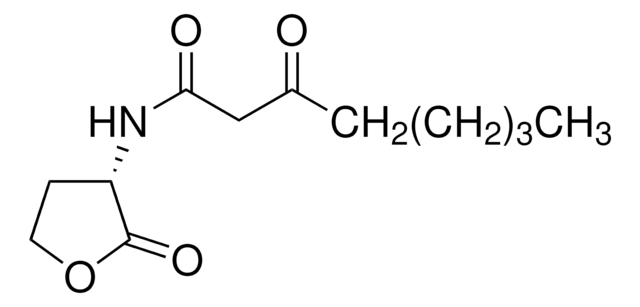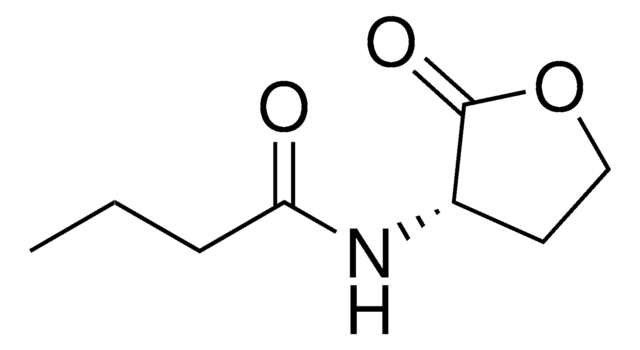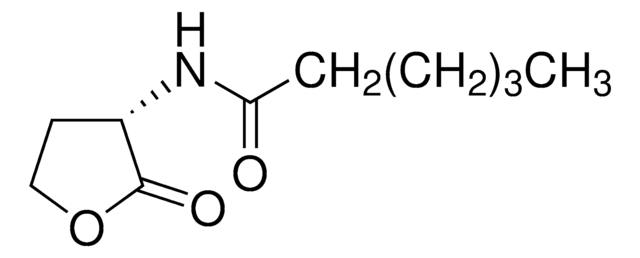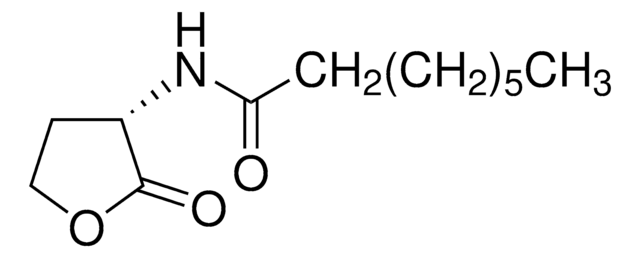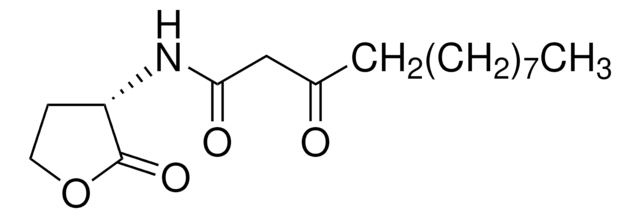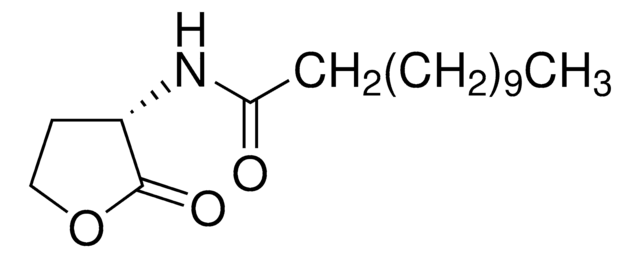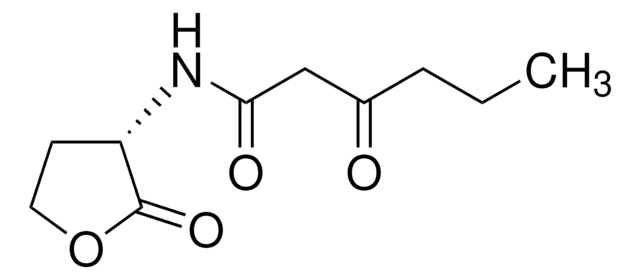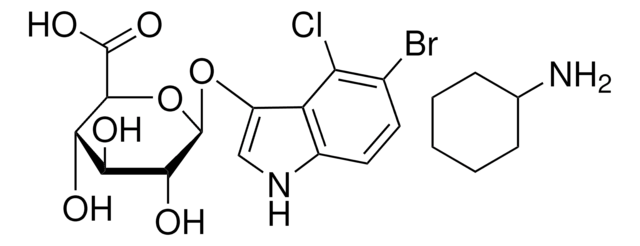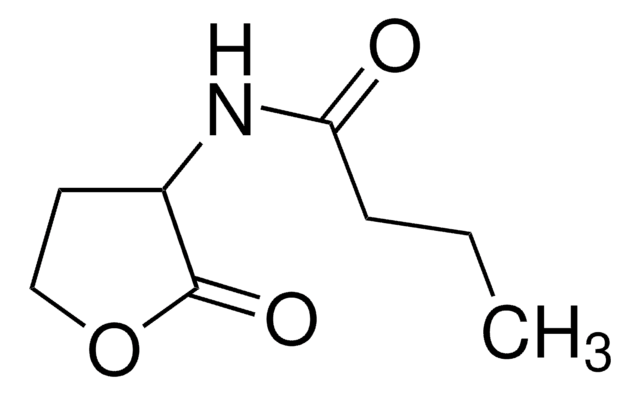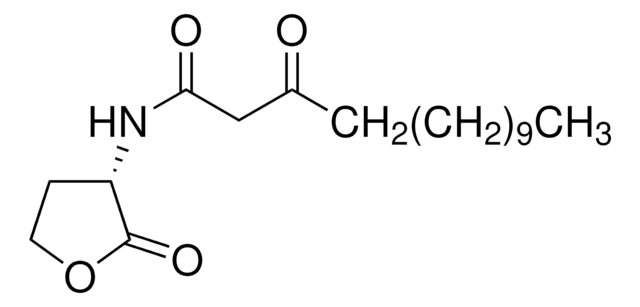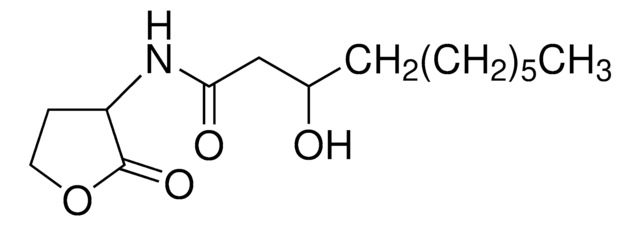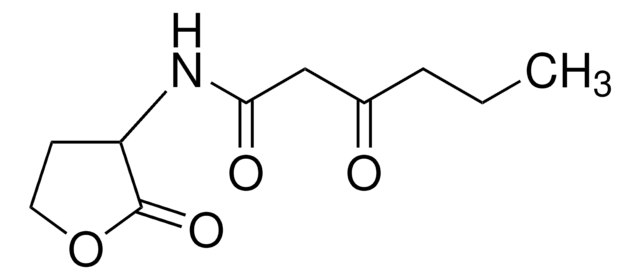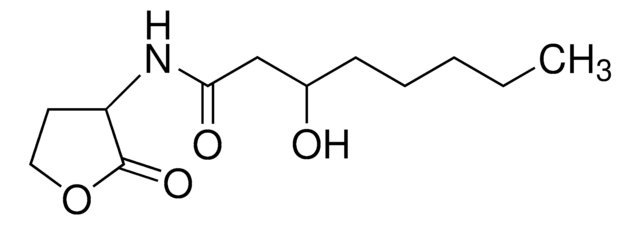07028
N-Decanoyl-L-homoserine lactone
≥96% (HPLC)
Sinónimos:
N-[(3S)-Tetrahydro-2-oxo-3-furanyl]decanamide, C10-HSL
About This Item
Productos recomendados
Ensayo
≥96% (HPLC)
Formulario
powder or crystals
actividad óptica
[α]/D -24±3°, c = 0.2 in methanol
color
white to off-white
idoneidad
conforms to structure for Proton NMR spectrum
aplicaciones
cell analysis
temp. de almacenamiento
−20°C
cadena SMILES
O=C1OCC[C@@H]1NC(CCCCCCCCC)=O
O=C1OCC[C@@H]1NC(CCCCCCCCC)=O
InChI
1S/C14H25NO3/c1-2-3-4-5-6-7-8-9-13(16)15-12-10-11-18-14(12)17/h12H,2-11H2,1H3,(H,15,16)/t12-/m0/s1
Clave InChI
TZWZKDULKILUPV-LBPRGKRZSA-N
Acciones bioquímicas o fisiológicas
Código de clase de almacenamiento
11 - Combustible Solids
Clase de riesgo para el agua (WGK)
WGK 3
Punto de inflamabilidad (°F)
Not applicable
Punto de inflamabilidad (°C)
Not applicable
Elija entre una de las versiones más recientes:
¿Ya tiene este producto?
Encuentre la documentación para los productos que ha comprado recientemente en la Biblioteca de documentos.
Los clientes también vieron
Nuestro equipo de científicos tiene experiencia en todas las áreas de investigación: Ciencias de la vida, Ciencia de los materiales, Síntesis química, Cromatografía, Analítica y muchas otras.
Póngase en contacto con el Servicio técnico